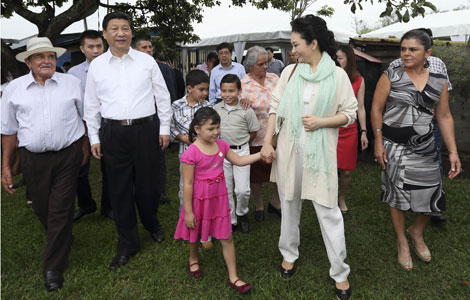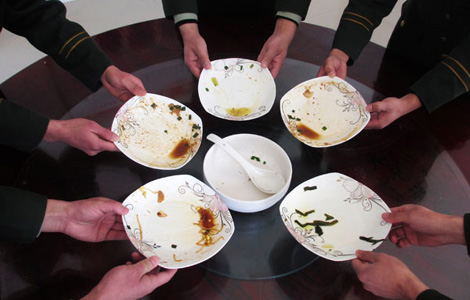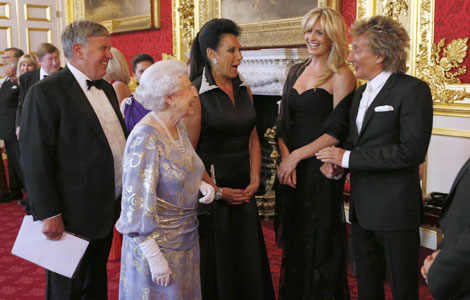More military interaction
Updated: 2013-04-24 08:00
(China Daily)
|
||||||||
US Chairman of the Joint Chiefs of Staff Martin Dempsey's ongoing visit to China, which began on Sunday, is widely perceived as lifting the curtain on this year's military-to-military exchanges between China and the United States. It is good to see the two countries are moving to establish constructive interaction between the two militaries.
Dempsey is the third high-ranking US official to visit Beijing in about a month following visits by US Treasury Secretary Jacob Lew and Secretary of State John Kerry. These high-level contacts will guarantee that both countries receive updates on each other's priorities and intentions, as well as concerns, which is conducive to avoiding misjudgments and keeping relations on the right track.
In his meeting with Dempsey on Tuesday, President Xi Jinping spoke highly of the progress in bilateral military exchanges since his visit to the US in February 2012 as vice-president.
On Monday, in a joint news conference with Dempsey, Fang Fenghui, chief of the general staff of the People's Liberation Army, announced that the two militaries will hold joint drills on humanitarian rescue, disaster relief and anti-piracy.
These are positive signals that the two militaries now share a growing interest in expanding their cooperation into the international arena. Closer collaboration and coordination on international security issues will help deepen strategic mutual trust between Beijing and Washington and contribute to peace and stability in the world at large.
The resolve of both Beijing and Washington to improve military ties has prompted speculation that pragmatic cooperation over regional and international security issues will feature in this year's bilateral military exchanges. Such a desirable momentum is badly needed, as suspicion and even strategic distrust still exist between the two countries and their militaries.
To avoid unwelcome confrontations from becoming a reality, the two countries should properly handle their differences and not let disputes over such issues as human rights and cybersecurity cloud or even undercut their efforts to firmly anchor bilateral ties, military relations included.
Given that the Asia-Pacific is where the majority of their interests converge, it is essential that the two countries interact in a constructive manner in the region when addressing hot issues and potential threats. To this end, the US should take Chinese sensitivities seriously when proceeding with its strategic pivoting or rebalancing in the region.
(China Daily 04/24/2013 page8)
Most Viewed
Editor's Picks

|

|

|

|

|

|
Today's Top News
Relationship 'relaunched'
Good start expected for summit
Xi, Mexican president discuss bilateral co-op
Cooperation to drive mutual growth
Chinese president arrives in Mexico for state visit
China is victim of hacking attacks
US to be largest trade partner
China joins fight against hacking
US Weekly

|

|
















